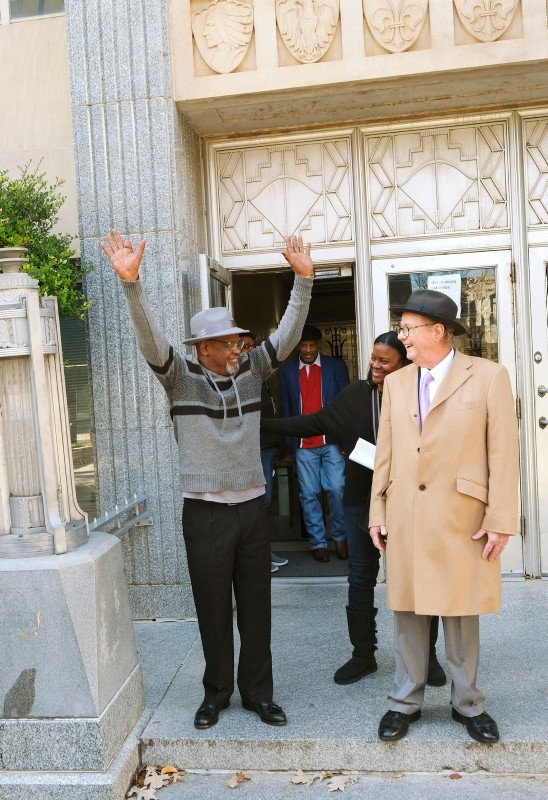In the longest known wrongful imprisonment case in modern U.S. history, an Oklahoma man was declared innocent this week after nearly five decades in prison for a crime the court now says he did not commit, according to a University of Michigan registry of such cases.
Glynn Simmons, 71, served 48 years, one month and 18 days for the murder of a store clerk during the armed robbery of an Oklahoma City liquor store in 1974, according to the university's National Registry of Exonerations, which tracks inmates cleared of sentences served for 25 years or more.
"Freedom agrees with me," Simmons said at a press conference after the hearing on Tuesday.

Simmons was wrongfully convicted on the basis of a single witness who lied on the stand on behalf of the prosecution when she said she had picked him out of a lineup of possible suspects when she had actually identified others, lawyers for Simmons contend.
Years later, other witnesses were found who said Simmons had been at a pool hall in a nearby city when the robbery took place, the lawyers said, according to a report by the registry.
Based on that, Simmons was declared innocent by Judge Amy Palumbo of the Oklahoma County District Court.
His lawyers, Joseph Norwood and John Coyle, are now considering litigation against the state to compensate Simmons for his time in prison.

He had "50 years stolen from him, the prime of his life," Norwood said at a briefing.
Neither Norwood nor Coyle were immediately available on Thursday to elaborate.
In 1975, the then-22-year-old Simmons received the death penalty in the case, but the sentence was modified in 1977 to life in prison after the Oklahoma Supreme Court ruled that all death penalty cases should be commuted to life without parole.
Palumbo vacated the conviction in July and freed Simmons, ordering a new trial. But his lawyers then filed for the declaration of actual innocence and won.

"When you know you're innocent, stick with it and don't ever stop," Simmons said. "Don't let nobody tell you it can't happen, because it really can."